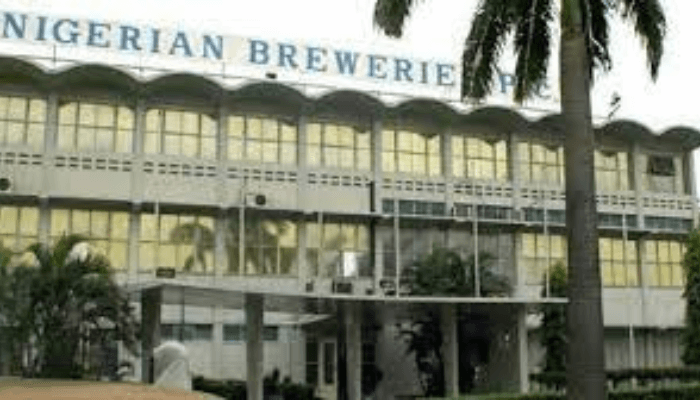Despite reporting a loss of N145 billion in 2024, Nigerian Breweries Plc has projected a positive economic outlook for 2025, driven by easing inflation, exchange rate stability, and a recalibrated energy market.
This was disclosed by Hans Essaadi, the company’s Managing Director/CEO, during its 79th Pre-Annual General Meeting (AGM) Media Briefing held in Lagos on Thursday.
Essaadi expressed cautious optimism, citing improved macroeconomic indicators as critical factors that could enhance consumer purchasing power and stimulate business growth across sectors. He pointed to a projected decline in inflation driven by a higher base effect, the rebasing of the Consumer Price Index (CPI), and the normalisation of energy prices following the removal of fuel subsidies.
“The expansion of local refining capacity, notably from the Dangote Refinery and the refurbishment of state-owned refineries in Warri and Port Harcourt, will reduce the foreign exchange burden on energy imports,” he said. “A reduced reliance on premium motor spirit (petrol) imports will ease pressure on Nigeria’s foreign reserves, fostering a more balanced payments system.”
Essaadi stressed that Nigeria’s economic performance in 2025 would heavily depend on the government’s ability to address structural challenges, including revenue generation, debt sustainability, fiscal discipline, and macroeconomic coordination.
Financial Performance and Challenges in 2024
Despite achieving a historic revenue milestone of N1.1 trillion in the 2024 financial year, an 81 percent year-on-year growth, Nigerian Breweries recorded a net loss of N145 billion, a 36 percent increase from the N105.76 billion loss reported in 2023. Operating profit rose by 59 percent to N68.4 billion, fueled by disciplined cost control and efficiency measures.
However, net finance costs surged by 34 percent to N253 billion, largely driven by higher interest expenses and the devaluation of the naira, which affected the company’s foreign exchange-denominated liabilities.
“The financial environment was particularly challenging,” Essaadi said. “Inflation peaked at 34.8 percent in December 2024, a near 30-year high, while the naira’s depreciation significantly inflated input costs.”
Despite the economic turbulence, the company implemented a series of strategic measures to stabilise operations. These included the recapitalisation of the business through an N600 billion rights issue, suspension of operations in two breweries, optimisation of production footprints, and the acquisition of majority stakes in Distell Wines and Spirits Nigeria Limited to deepen market diversification.
Read also: Nigerian Breweries predicts economic growth in 2025
Bernardus A. Wessels Boer, the company’s finance director, confirmed that the company had cleared most of its FX debt and significantly reduced its local debt from around N600 billion to N200 billion. “We’ve deleveraged considerably, but elevated interest rates continue to weigh on our finance costs,” he said.
In a positive turn, the company’s share capital increased by 201.5 percent from N5.14 billion in 2023 to N15.49 billion in 2024, while total equity surged by 614 percent to N465.47 billion, signaling a stronger capital base heading into 2025.
Looking ahead, Nigerian Breweries is betting on improved consumer spending in 2025, driven by better economic conditions and a possible restructuring of the national minimum wage. The company aims to leverage its leadership position to capitalize on rising demand.
Sade Morgan, corporate affairs director of Nigerian Breweries reaffirmed the company’s commitment to long-term growth through sustainability. “We’re raising the bar on our environmental, social, and responsible governance pillars. These align with the UN Sustainable Development Goals and ensure that we continue to positively impact society,” she said.
Uaboi Agbebaku, the company’s secretary and legal director emphasised the importance of operational efficiency and sustainability in the company’s 2025 recovery plan, noting: “We have shaped our business plan around resilience, transformation, and stakeholder value.”

